Zohreh Abdollahkhani — also known as Iran’s ice lady — won the ice climbing bronze medal at the Asian Championship in 2014, which took place in Cheongsong, South Korea. When she did, she became the first Iranian woman to ever win a medal in the sport for Iran at an international competition, and the only non-South Korean to ever win a medal at the Asian ice climbing championships. She is also the only Iranian woman to have served as a referee in the Asian rock climbing championships.
Zohreh Abdollahkhani, now 32, began climbing mountains with her parents when she was a child. She scaled the Damavand summit, Iran’s highest peak (5,610 meters), in 2003. After that, she began focusing on rock climbing, and pursued the sport for the next seven years. “In 2010, I attended an advanced training course, which including an ice climbing session,” she told IranWire. “I tried it for the first time and I liked it. Since then, I only have done ice climbing. I have limited my rock climbing activities to refereeing and teaching”.
Before moving to Seoul in South Korea to study for a Master’s degree in Global Sport Management, Abdollahkhani taught ice climbing as well as rock climbing. Her students’ experience of learning was so much different from hers: as a teacher, she was able to take them through techniques that took her two or three years to learn without a coach or instructor.
About her career as a referee she said: “When I wanted to attend the refereeing course, many people made fun of me. They didn’t believe in me. I proved them wrong and passed the test, scoring 49 out of 50.” She qualified in Iran in 2013, and then went on to pass the Asian rock climbing training course and internship in Indonesia in 2014, where she also scored high — leading to an invitation to referee in the Asian championships in Malaysia in 2015. She became the first Iranian woman to referee for international championships.
The Inspiration to Aim High
Abdollahkhani faced challenges and doubts when qualifying to become a referee, but the experience was nothing new. Back in 2013, when she first started talking about attending international competitions, she had little encouragement from the sports community. No one believed in her, except her family, who stood by her. Although she received a distinction in her Master’s degree in aerospace engineering, she had hopes for a different future. “I told my family that I didn’t want to do PHD and wanted to focus on sports. They supported my decision. I was lucky to have them”.
Because of Iran’s variable climate, and because of an absence of artificial ice walls in Iran, it is it is impossible to pursue ice climbing all year long. “In other countries like South Korea, climbers have access to artificial walls throughout the year,” Abdollahkhani said. But in Iran, even in the most ideal conditions, ice climbers can only practice for five months a year. To make up for this, they turn to “dry-tooling” (climbing rocks with ice axes and crampons) during warmer seasons.
When she took up ice climbing as a serious pursuit, facilities were sparse in Iran. Climbers were forced to learn from their own experience and mistakes and work on their own to improve their skills. “I was lucky enough to practice with [male ice climbers] Mohammad Sabouri and Masoud Zeinali. Many Iranian climbers only climb frozen waterfalls during the winter — they don’t think they can do this professionally or that they can compete in international championships”. But Sabouri and Zeinali had ambitions, she said, and inspired her to have them too. She always imagined she would take part in international competitions. “Being the first in something was exciting, but at the same time, it was difficult. I had to experience everything by myself, since no one had tried it before”.
The Wrong Shoes and Gloves — But the Drive to Succeed
In 2013, Abdollahkani staged her debut in international competitions, attending the world championships in South Korea. She described the competition as an “extremely tough experience.“ While training in Iran, she was not able to find specialist shoes in her size, so she ended up wearing shoes that were four times larger than her normal shoe size. She also arrived in Seoul without the correct gloves for the competition. She was shocked when she saw the climbers from other countries with the best quality and most up-to-date equipment. But these were not the only problems. “We practiced on a two-meter wall in Iran, while the wall in front of me was 35 meters,” she said.
“At that moment, I asked myself: ‘What are you doing here?’ It was like I lost my motivation. I wanted to stay strong but everything was scary.” She took 34th place in the competition. “After the championships, I wasn’t sure if I wanted to continue,” she said. “But when I arrived at Tehran airport and saw members of my family greeting me with flowers, I realized that I shouldn’t just try only for myself. There are people who love me and I should make them proud.”
Two months later, she attended the Ice Climbing World Cup in Russia and came 21st. “There was not much time to improve myself, but I was more confident,” Abdollahkhani said.
After these two championships, Abdollahkhani worked to improve her ice climbing more than ever before. She worked hard as a rock-climbing teacher to pay for better equipment and facilities, and to travel to competitions.
She studied videos of other athletes, paying particular attention on ice climbing athletes from South Korea and Russia. She practiced her techniques. Finally, at the 2014 UIAA (International Climbing and Mountaineering Foundation) Ice Climbing Asian Championship in Cheongsong, South Korea, she won the bronze. Iranian ice climbers Masoud Zeinali and Mojtaba Saqafi also won medals at the same competition. “It felt great when I saw Iran’s flag held up three times,” she said.
Representing Iran at Sochi
Ice climbing is not yet classified as an Olympic sport. Advocates for the sport are pushing for it to be included, and in 2014, Zohreh Abdollahkhani joined Masoud Zeinali and 18 top ice-climbing athletes from other countries to demonstrate ice climbing to Olympic officials as the Winter Olympics got underway in Sochi, Russia.
The following year, she reached the semi-finals at the Ice Climbing World Cup 2015 in South Korea — a success story that Iranian media ignored. “If Iran’s football national team played in a semi-final, the story would have been all over the media, but unfortunately other sports are not a priority for them,” she said.
Continuing in the sport is an on-going challenge. It is a constant strain to have to cover all the expenses, including equipment, travel and places to train. As a result, she has not been able to afford to attend recent competitions in Europe or US. “When I compete, I see other climbers who are satisfied no matter whether they win or lose. They know they can still compete in future. But this is not the case for me. There is no guarantee that I can pay for the next trip — that’s why I feel a lot of pressure.”
She lost her main support and beloved father in 2015. After his death, she stopped climbing for more than two months. When she went back to compete, she was unprepared for how difficult it would be. “I had a competition coming, so I went back to climb. I didn’t have a coach, so I practiced by myself and I didn’t know my body wasn’t strong enough or the same as before. I damaged my shoulders and hands.” Eventually she saw a doctor who advised she take more time off to allow her body to recover.
Despite needing to focus on her recovery, she did continue practicing, even though she frequently experienced pain. She came top in a 2015 competition in Iran, which led her to compete for the first time as a member of the national team at the World Championships in 2016. But she was unhappy about her performance there. “I was not okay, physically or mentally. I took fifth place in Asia and 13th in the world.”
After the competition, Zohreh Abdollahkhani went back to Iran to focus on her recovery in earnest. In March, she resumed training in preparation for competitions in 2017.
Like several other Iranian athletes, Abdollahkhani has received offers to compete for other countries. She always refused. “I have never regretted my decision, because I opened a new way for Iranian women and I am proud of that”.
She is also proud of her achievements as a referee. “My next step is to become a world referee. People keep telling me that I can’t. But this doesn’t stop me — it hasn’t before.”
visit the accountability section
In this section of Iran Wire, you can contact the officials and launch your campaign for various problems




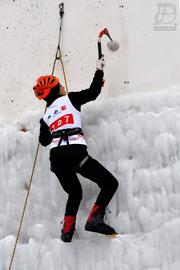
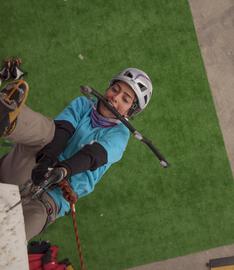

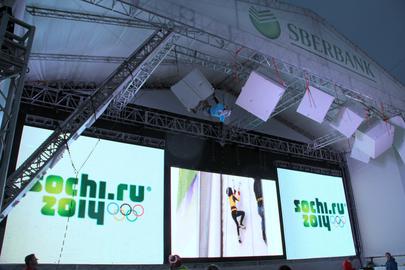
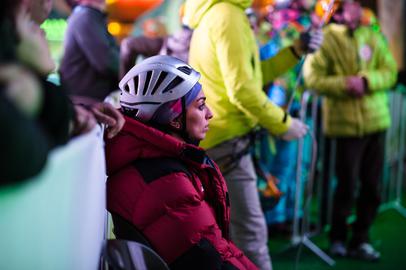













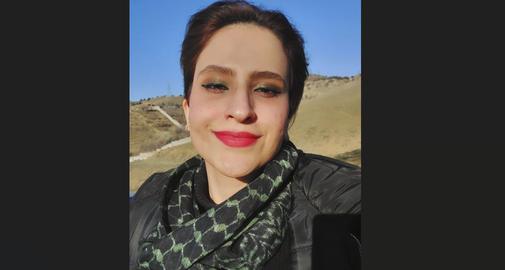


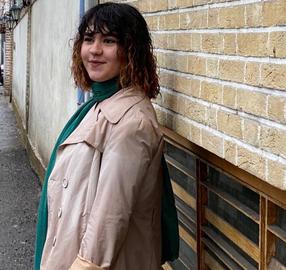
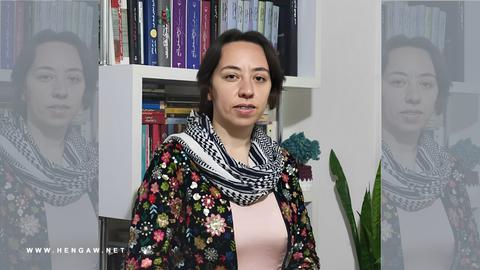
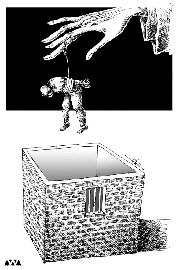
comments